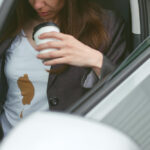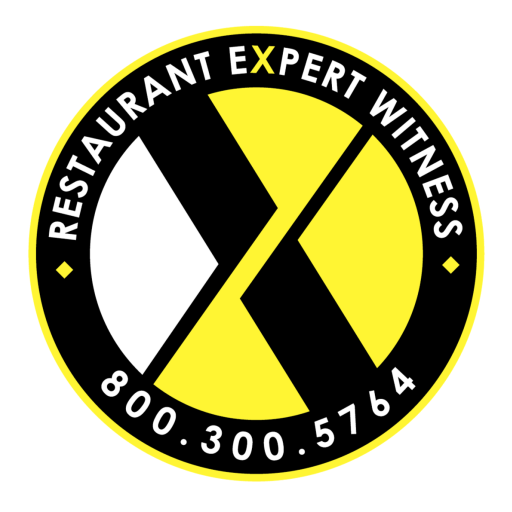Over the last ten years, the number of litigation matters and insurance claims about hot coffee and hot tea spills on customers coming through a drive-thru has skyrocketed. The statistics for these events are not tracked in any reliable way, but look at legal dockets across the country, and it is obvious that hot coffee and hot tea spills – especially through the drive-thru and carry-out operations have become an industry hazard of world-class proportion.
The infamous 1994 lawsuit involving a cup of coffee from McDonald’s and an injured customer has become one of America’s most newsworthy civil cases. Though the McDonald’s Hot Coffee Case is often mocked, the story behind this case should warn restaurant owners around the country: hot coffee served at drive-thru windows can lead to serious injuries if not handled properly. HBO premiered its documentary Hot Coffee in 2011 to tell the true story behind the case and provide a cautionary tale for other businesses.
The lawsuit stems from a 79-year-old woman who had purchased coffee from the drive-thru window at a McDonald’s restaurant in New Mexico. The coffee was served to her in a Styrofoam cup and was far too hot for consumption. She spilled the coffee on her lap, suffering third-degree burns. The woman sued McDonald’s for negligence and was awarded $2.9 million in damages.
Though the settlement amount in the McDonald’s case was high, it wasn’t necessarily in line with similar cases. Hot beverages that are served too hot can cause both minor and serious burns, as well as dental damage.
Did you know that from 1982 to 1992, 700 people reported being burned after ordering hot beverages from McDonald’s drive-thru window before the lawsuit?
McDonald’s is not the only business that has been sued for hot coffee burns.
- A woman sued Dunkin Donuts in New Jersey for severe hot coffee burns.
- A Florida woman sues Starbucks after being horrifically burned by coffee served through the drive-thru.
- A California man recently filed a personal injury lawsuit against Starbucks after suffering severe burns on his stomach, hands, and other areas due to their scalding beverage.
The Centers for Disease Control and Prevention (CDC) estimates that approximately 1.1 million people are treated each year for burn injuries. In the United States, hospital visits due to scalds make up 38-58% of burn injuries. Of all scalding incidents reported, the most common cause is hot food or beverage (42%), followed by hot water or steam (30%). Coffee accounts for around 15% of all nonfatal scald injuries suffered by seniors aged 65+.
Many personal injury lawyers know that restaurants are at risk in these situations. A patron of a place that serves hot coffee via the drive-thru window can be seriously injured if the beverage is not served at a safe temperature. Some precautions you can take are to ensure your lid is on securely, that your drink is not too full or overflowing, that the cup and lid are properly sealed, and that the temperature of the coffee is appropriate for consumption.
A business may be held liable in certain cases if it does not make a reasonable effort to prevent injuries resulting from hot beverages served at drive-thru windows.
Warning – Coffee Served Too Hot Can Cause Severe Injury
As a restaurant expert witness, I have seen firsthand the dangerous consequences of serving too hot coffee. Contrary to popular belief, a piping hot cup of coffee is not a sign of quality but a potential hazard. Hot coffee can cause severe burns that result in excruciating pain, long-term scarring, and even nerve damage. The National Coffee Association recommends serving coffee at a temperature between 180°F and 185°F to provide a balance of safety and taste. Customers should be aware that coffee served above this temperature can cause injury.
As a customer, you should always take precautions when ordering hot drinks at the drive-thru restaurant window. You should never assume that the temperature of your coffee is safe, and you should always be aware that it could contain scalding liquid. If a cup of coffee is too hot to touch, it can pose a serious risk of injury if spilled on sensitive skin areas like your face, eyes, and hands.
As a restaurant consultant, I suggest implementing safety measures such as tamper-evident lids and double-cup insulation for hot beverages to ensure that restaurant owners meet their obligations to provide a safe environment for their customers. Providing thorough staff training on proper temperature standards, lid security, and spill prevention is also important. Restaurant owners can protect themselves from any potential legal issues by taking the extra steps to ensure customer safety. By following these simple precautions, restaurant owners and staff can avoid the high financial costs of an incident involving hot coffee. With proper responsibility and attention, restaurant drive-thru customers can remain safe and burn-free.
Common causes of excessive heat in hot coffee
When serving piping-hot coffee in a busy establishment, excessive heat can become a problem. I have seen this issue arise time and time again. A few common culprits for overly hot coffee include improperly calibrated coffee machines, lack of temperature controls, and leaving coffee pots or carafes on heating elements for too long. Not only can excessively hot coffee be unpleasant to drink, but it can also pose a safety hazard for customers and employees. It is important to address this issue promptly and ensure proper measures are taken to regulate the temperature of coffee served in restaurants.
Safety should always be the top priority when serving hot beverages. By following recommended temperature standards and implementing safety protocols, restaurant owners can avoid putting their customers at risk of serious injury or legal action. With a few simple precautions, restaurant owners can ensure that any coffee served is safe for consumption.
The Dangers of Consuming Excessively Hot Beverages & Their Potential for Severe Burns
There are devastating effects of consuming excessively hot beverages. While it may seem innocuous, a cup of scalding hot coffee or tea can cause severe burns that can require hospitalization and even surgery. Many people assume that hot beverages are simply an uncomfortable but harmless part of life, but the reality is that they can cause lasting damage. The heat from the drink could result in tissue damage, inflammation, and nerve damage of the throat and mouth. In severe cases, consuming very hot liquids like coffee can cause scalding burns that can lead to skin scarring and second-degree skin burns. Long-term effects may include difficulty swallowing food and fluids due to painful scaring and ulceration caused by the burn. For this reason, it is essential to be mindful of beverage temperature and serve drinks at a safe temperature for consumption.
Legal Risk Factors for Restaurants Serving Excessively Hot Beverages
In addition to the health risks of serving hot beverages, there is also a potential legal risk for restaurants that may be liable for a burn caused by an excessively hot drink. Coffee and tea served in restaurants are often much hotter than recommended, with temperatures reaching up to 185°F or higher. This temperature can cause severe burns if it comes into contact with the skin. Depending on the state, restaurant owners could be held liable for any personal injury a customer suffers due to negligence. A personal liability lawyer is necessary. They understand the complexities of the law and can help customers with severe coffee burn cases.
By paying attention to beverage temperature and following recommended safety standards, restaurant owners can protect themselves from personal liability issues while keeping their customers safe. With proper training and the right equipment, restaurants can serve hot beverages without putting customers at risk of serious injury. Taking the necessary precautions is always the best course of action, and it can help restaurant owners avoid potential personal liability issues.
In conclusion, a personal liability lawyer can help restaurant patrons who have suffered from severe coffee burn cases. We’re here to help them build a case against restaurants not following the recommended safety standards for serving hot beverages. Unseen operational practices are usually the missing link in deciding cases involving restaurants. With our expertise, we can provide crucial evidence needed to protect your client’s case. I have 40+ years of experience as a restaurant consultant and restaurant expert witness. I can help your client in cases that involve scalding hot liquids. Contact us today by calling (800)300-5764 – let’s dive into this together!
